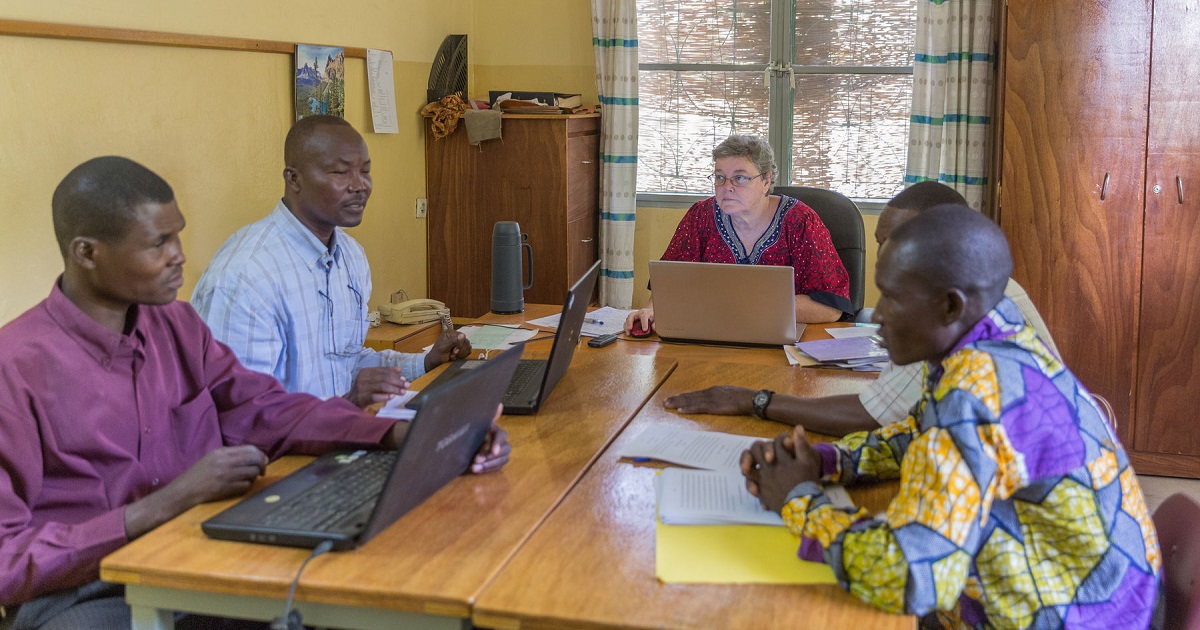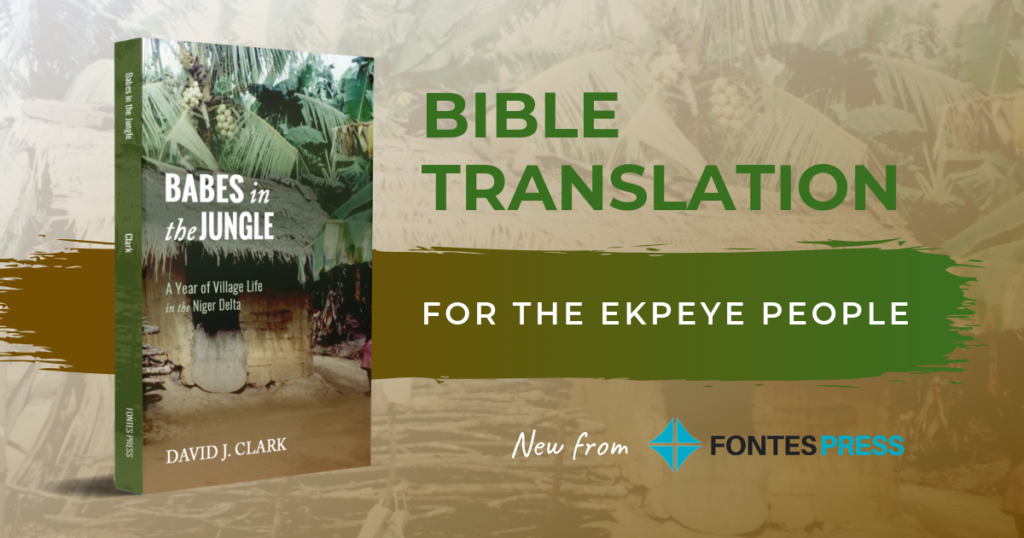
Jackie H. leads a translation consultation session with the Niellim team in N’Djaména, Chad.
In Bible translation projects today, it is more often the case that local, native speakers of a language are on the translation team, with linguists and missionaries training and assisting them. Those assisting can be professional linguists, Bible experts, biblical language experts, or any combination of these and more.
When non-native speakers do the translation, there are obvious challenges, preeminently that the translator is not a native speaker, which can result in rough and unnatural translations. This can lead to completed Bibles that nobody will read or use.
When native speakers do the translation, often on a team, the greatest challenge is that they often do not have biblical language skills or training in interpreting the Bible. They can get initial training in their region from missionaries, linguists, and consultants, but they continue to need their assistance throughout the translation process.
David Clark, a linguist and biblical scholar, spent a year in the Niger Delta with the Ekpeye people, where a native baptist minister named Reverend served. Reverend was working on translating the Gospel of Mark into Ekpeye, and Clark would often spend time checking the translation against the original Greek text of Mark. This is the preferable consultation process, since to check a translation (into Ekpeye from English) with another translation (into English from Greek) would bring inferior results. All translation involves interpretation to some extent, since language is inherently ambiguous (think of how often we misunderstand our native English friends). So it’s best that Clark was able to check the Ekpeye translation with respect to the original Greek text.
Reverend spoke Ekpeye and English, but it was a “pidgin” English barely intelligible to Clark when he arrived. (A pidgin language is one that develops from two or more other languages because of the need for communication between people who do not share a common language.) To complicate matters, Reverend’s English Bible was the KJV! So he was translating from KJV English through his own pidgin English into Ekpeye. His translation was actually turning out pretty well, but one day Clark discovered a humorous mistake, as he narrates in Babes in the Jungle: A Year of Village Life in the Niger Delta.
In Jesus’ parable of the sower, the seed lands on four different kinds of soil, with four different results. The last of the four pictures is of seed falling among thorns, which “grew up and choked it” (Mark 4:7). Reverend thought that the English verb “to choke” was the same as the pidgin word “to chuke,” which means to lacerate, penetrate or puncture.
We had learnt this word one day when Okpara had come limping along to get some medical help from Glenys. He had fallen off his bicycle, and one pedal had given him a nasty cut on the sole of his foot. Okpara described the mishap with the statement “Dis igwe done chuke me for foot.” Glenys applied some antiseptic ointment and a bandage and he soon recovered. We stored away the word “chuke” for future reference, and now it came in useful.
Reverend was not familiar with the English word “choke” which, in the context of plants growing, is used in a metaphorical sense anyway. The literal meaning of “chuke” is not entirely out of place in the context of thorns, and he had pictured the thorns actually penetrating the stems of the wheat that was growing from the seeds sown by the farmer. So the general sense of his translation was not misleading, though in detail he had not grasped the exact force of the original parable.
This was a memorable lesson to us of the importance of having a correct understanding of any text that is to be translated from one language to another.
There are many other more serious examples of misunderstandings in translation due to lack of training or rushing the process, but we’ll stick with this mostly harmless and entertaining example.
I have been told by many who know the situation that one of the greatest needs in Bible translation today is for more consultants. Consultants are in high demand, and multiple programs exist for getting people trained (e.g., one is with the Seed Company). If you have a love for biblical languages, exegesis, and missions, maybe you should consider using your gifts and passions for assisting Bible translators.
But even linguistic consultants need training, both for their own biblical knowledge and for their ability to train local translators. That’s why schools such as Dallas International University exist, where I serve as an instructor as a Wycliffe missionary.
Dallas Int’l provides programs at the bachelor’s, master’s, and now also the doctorate level, to prepare students for international service, including especially the work of Bible translation.
You can contribute to getting more Bible translation linguists and consultants trained by partnering with our Wycliffe teaching ministry at Dallas Int’l.
Also check out Clark’s Babes in the Jungle for a first-hand account of what translation consultants face in the field and why they need training.



